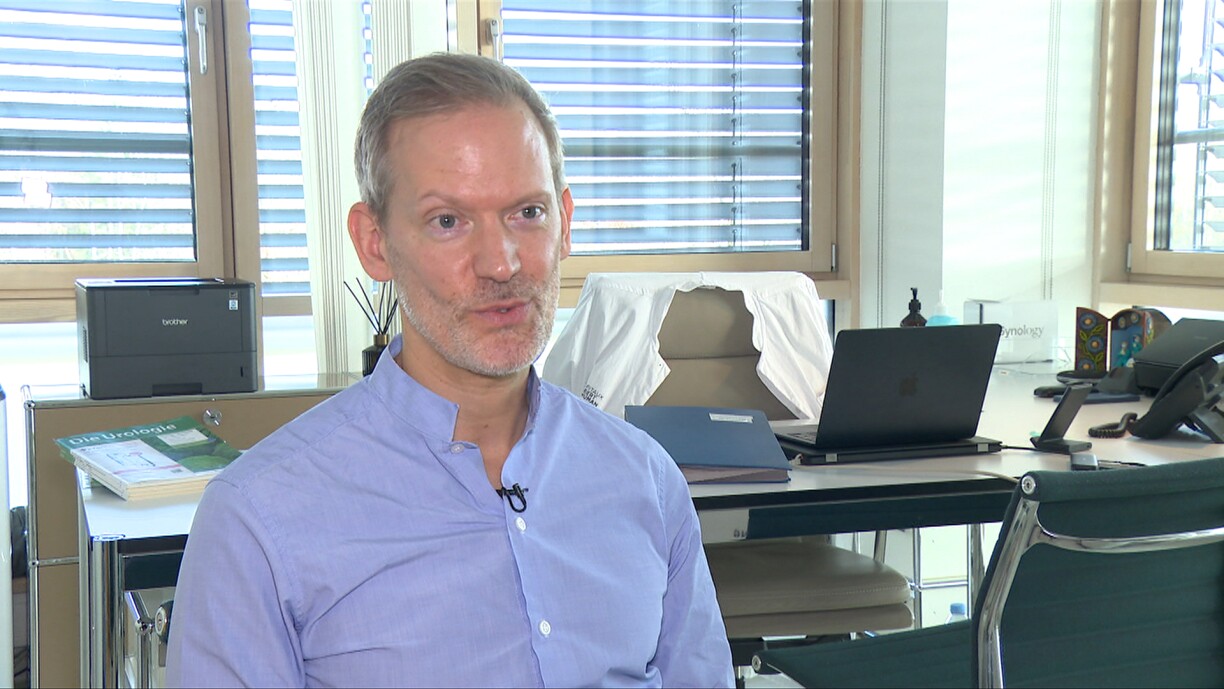
With the AMMD’s general assembly scheduled for the same day as the negotiations, AMMD President Dr Chris Roller believes this could lead to a misunderstanding: “I find it strange that the Health Minister said in a newspaper interview on Friday morning that she’ll just see who shows up that day.”
In an interview with RTL, Roller hinted that political manoeuvring may be at play to divide doctors, “which is unacceptable to us.”
In response to RTL, the CNS writes that at the time the meeting on 17 December was set, it was not aware that the AMMD would be holding its General Assembly that day.
Depending on how things unfold, other groups of doctors outside of the AMMD might also be seated at the negotiating table on December 17. As reported in the Lëtzebuerger Land on 21 November, the Union of Salaried Hospital Doctors (MSH) plans to hold an extraordinary general assembly on 1 December to amend its statutes, opening up representation to all hospital-affiliated doctors, not just salaried ones.
“That is of course their right. We live in a democracy, and everyone has the right to freedom of association. But the question is whether they also intend to participate in negotiations for the upcoming convention,” Dr Roller remarked.
If the MSH does amend its statutes, it could potentially become a representative body for over 1000 hospital doctors which would rival the AMMD, a recognised representative union with around 1000 members.
The medical boards of four hospitals and four other healthcare institutions have recently expressed concerns over the AMMD’s demands for the new agreement.
“According to the law, it is the ‘most representative association’, as written in the Social Security Code. What will the CNS do now? I don’t know if this means that anyone can just show up. We’ll have to see,” Roller added.
The AMMD submitted a written request to reschedule the first negotiation meeting, but the CNS replied that this was not possible, citing an article from the Social Security Code.
There will be no major dialogue between hospital medical boards and the AMMD, Dr Cyril Thix, President of the Medical Council at the Robert Schuman Hospital (HRS), stated in an RTL interview on 17 November.
But according to Dr Chris Roller, the association held a lengthy meeting with the medical boards, representing hospital doctors, at the end of October, during which all outstanding questions were addressed. “And we also provided them with the answers,” Roller argued.
He noted that some individual representatives had even provided positive feedback following the meeting. “That’s why I think it’s a bit of a shame if people now claim there is no communication.”
The AMMD’s demands for a new convention were also discussed with the hospital medical boards during that exchange.
Minor medical procedures currently permitted in hospital outpatient departments may in future also be carried out in private practices, Health Minister Martine Deprez announced in the Chamber of Deputies last Thursday.
By next year, the minister plans to introduce a dedicated catalogue outlining these procedures. The financing model is expected to mirror that of hospitals, meaning patients would not pay more than they would for the same intervention in a hospital setting.
According to the AMMD President, strong public and internal pressure seems to have pushed the Minister to make the long-overdue statements: “We welcome the fact that there is finally some movement. And we’re not asking for the impossible. We’re asking for what was promised during the election campaign and in the coalition agreement.”
If staff are to be remunerated as they are in hospitals, Roller argued, then the real costs borne by doctors in the outpatient sector also need to be considered, including staffing costs, rent, and equipment. “And still, many procedures can be carried out far more cheaply in small private practices than in large, anonymous hospitals.”
Despite these changes, doctors would remain connected to hospitals, the AMMD president added, as some procedures can only be performed in a hospital setting.
Waiting times need to be reduced, argued Dr Chris Roller. He added that the so-called “fair-weather medicine” must be taken out of hospitals. These are minor procedures with little risk, for which patients in Luxembourg currently have to wait far too long, “much longer than abroad, and we must be able to carry these out in doctors’ outpatient practices.”
Roller continued that hospitals should not be funded solely through such procedures. Hospital medicine, as the term implies, should be reserved for treatments that must be carried out in a hospital setting. He pointed to intensive care, emergencies, strokes, and heart attacks as examples: “These are all things that must continue to be handled in hospitals. But those treatments must also be properly reimbursed and revalued so that small, routine procedures do not end up subsidising the rest.”